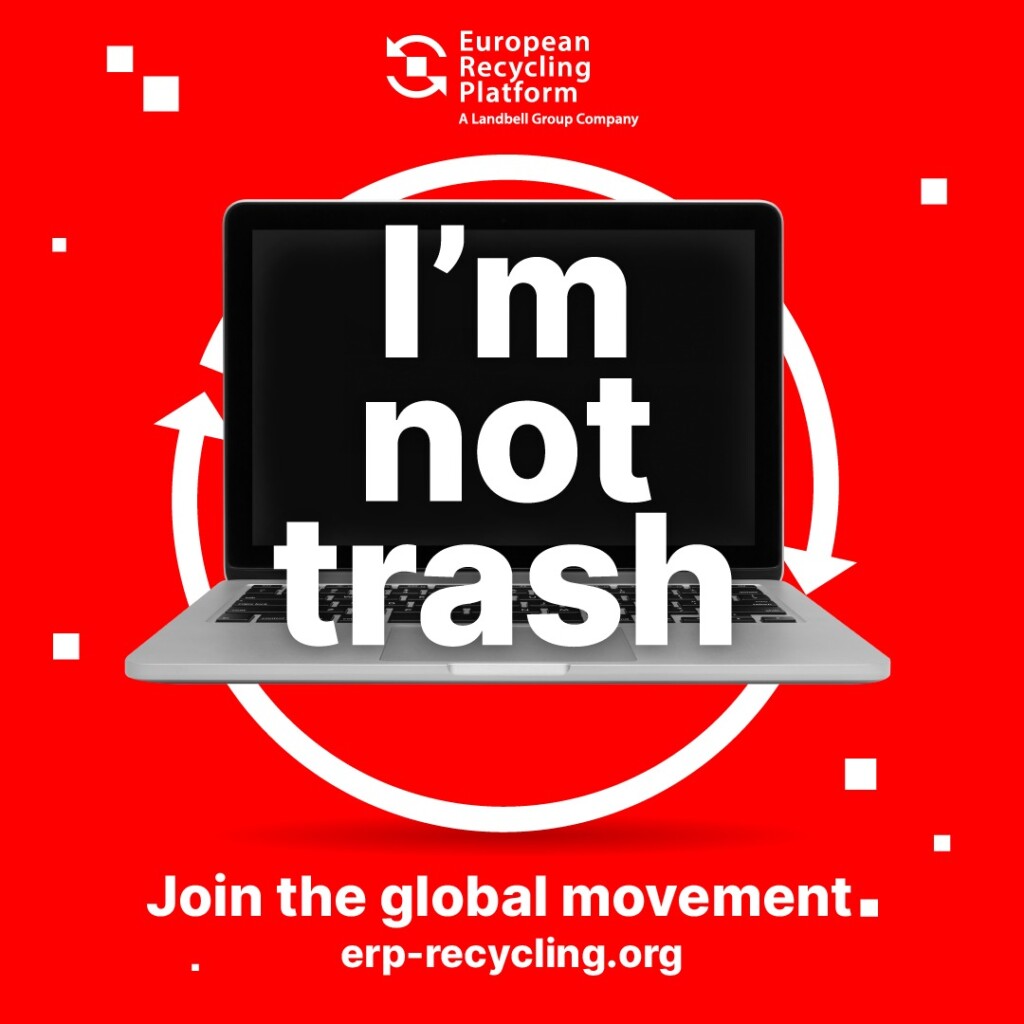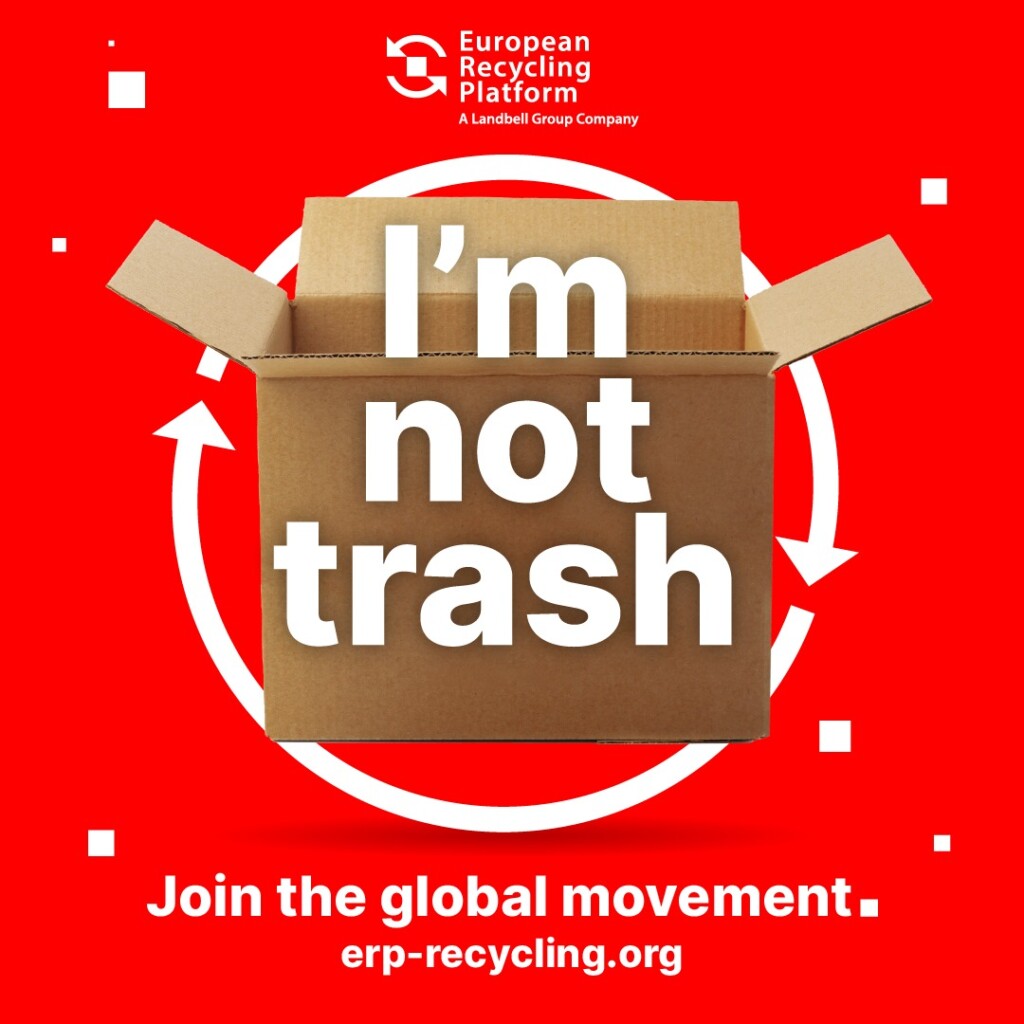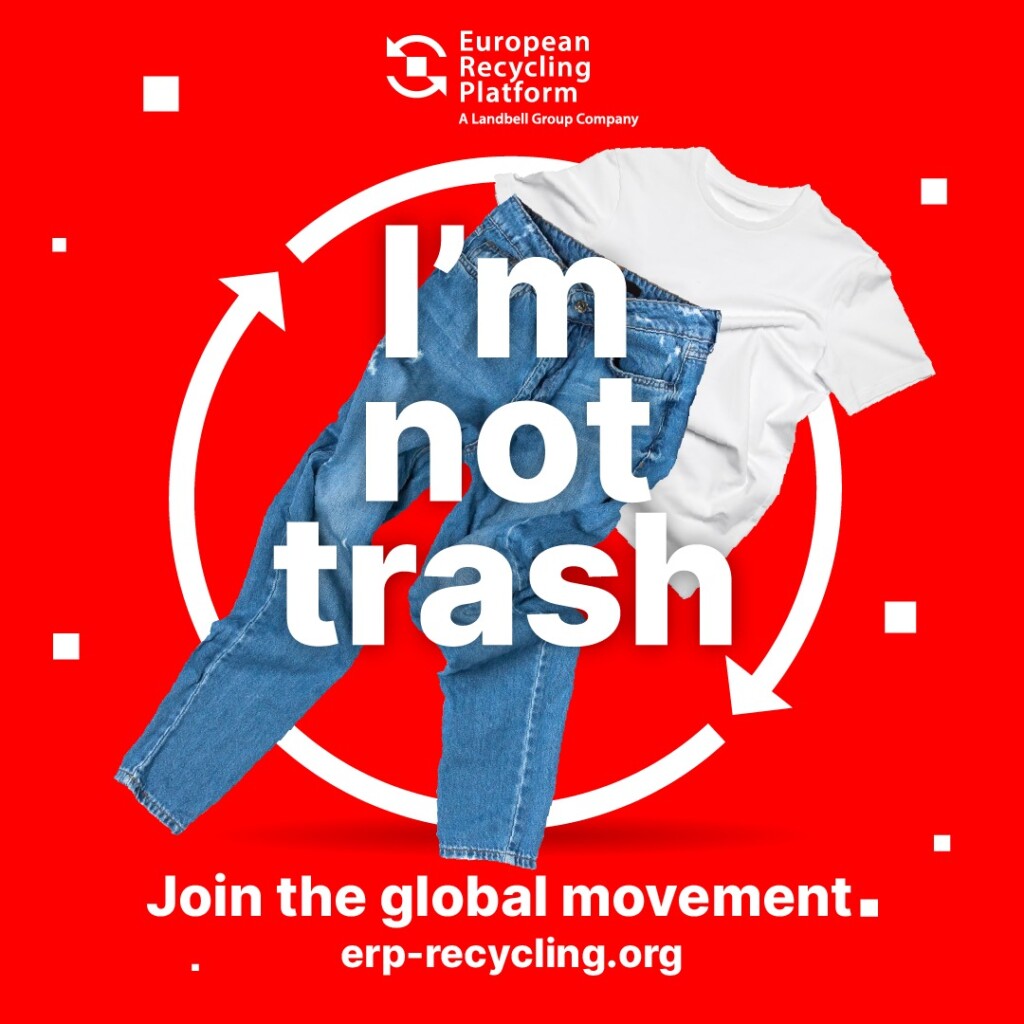i’m not trash campaign
How to join the global movement
Waste is a resource and every single citizen and company can play a crucial role in the waste management process
During the waste management process, there are different steps where all players have a role in guaranteeing the final result and the implementation of circular economy solutions and waste management procedures.
ERP, as a Producer Responsibility Organisation (PRO) operating in several countries, is calling industry and society’s attention to underline the need for recycling, starting with the correct disposal of recyclable waste in the right bins, allowing the takeback, treatment and recycling operations.
Every company that first places a product subject to Extended Producer Responsibility (EPR) requirements onto the market is considered a producer and ERP helps to comply with regulations for recycling waste electronics, batteries, packaging and textiles.
Waste streams

WEEE
Modern electronics are made of rare and expensive resources, which can be recycled and reused if the waste is effectively managed, saving raw materials.
From big to small, from lamps to IT, when devices reach their end-of-life they are considered Waste Electrical and Electronic Equipment (WEEE). WEEE contains a complex mixture of materials, some of which are hazardous, which can cause major environmental and health problems if the discarded devices are not managed properly.
Improving the collection, treatment, and recycling of electrical and electronic equipment (EEE) at the end of its life can:
• improve sustainable production and consumption
• increase resource efficiency
• contribute to the circular economy
Videos about WEEE recycling:
Large Domestic Appliances | Cooling Appliances
Display Equipment | IT Equipment
Small Domestic Appliances | Lamps | PV Panels

Batteries
Batteries or accumulators are any sources of electrical energy generated by direct conversion of chemical energy and consisting of one or more primary battery cells (non-rechargeable) or consisting of one or more secondary battery cells (rechargeable).
Most types of batteries contain toxic heavy metals, including nickel, cadmium, and mercury. All of these metals can be recovered and reused.
Recycling batteries is good for the environment as it keeps them out of landfill, where heavy metals may leak into the ground, causing soil and water pollution and endangering animal and plant life. If batteries are incinerated with household waste, the heavy metals inside them cause air pollution.

Packaging
This waste recycling category includes paper, cardboard, plastics, polystyrenes, steel, aluminum, glass and wood.
Many of these materials can be recycled into new products and recycling packaging reduces the amount of waste that is sent to landfill and saves natural resources.
Videos about packaging recycling:
Glass | Metal | Paper/Cardboard | Plastic

Textiles
The new regulation for Textile-EPR applies to all companies that professionally offer clothing on the Dutch market.
This means all manufacturers and importers of consumer clothing, workwear and corporate clothing as well as table, bed, table and household linen.
Furthermore, it does not matter whether the textiles are offered to a company (B2B) or to end consumers (B2C, D2C). This also applies to textiles which are made from partially recycled material.
Excluded from the regulation are:
- Dutch second-hand shops, because these clothes already exist on the market
- Companies that supply basic materials for production
ERP Services
How ERP can help
Avoiding landfill
Treatment of hazardous substances can avoid the contamination of soils, water and air and reduce atmosphere pollution
Promoting good practices
Invest in awareness campaigns, such as “I’m not trash” to awaken circular behaviour by companies, associations and the population in general
Spreading the word and sharing are important to multiply the effect and increase the replication of these good and sustainable practices